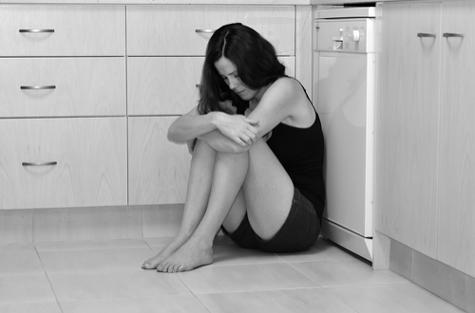When Barbara, a 28-year-old mother of two pre-school boys, Josh and Noah, left her violent husband, she never expected to be punished for it at work.
Her husband refused to accept she’d left him. So he stalked and harassed her by phone and at her workplace, begging her to come home. Some days he called her more than 70 times in an afternoon, despite the fact she wouldn’t pick up her phone.
Terrified, anxious and in a constant state of flight, Barbara found it difficult to maintain her composure at work – and it didn’t help when her employer accused her of “causing trouble in the workplace, by bringing her private life to work” and told her to “leave it at home”.
If it had been a stranger stalking her, Barbara would unquestionably have got more sympathy and support.
But we still have a culture that sees family violence as a private matter, to be kept at home. And that means that, too often, people like Barbara are victimised twice: once at the hands of a violent partner, then again at the hands of friends, colleagues, employers and a culture that blame the victim for “causing trouble”.
Barbara was just one of the hundreds of people who shared their story with the Queensland Premier’s Special Taskforce on Domestic and Family Violence. Our eight-member taskforce – led by Dame Quentin Bryce and involving community representatives and state MPs – spent five months travelling around the state to prepare a report for the state government.
I’ve worked in the community sector for 30 years, so I thought I was prepared for the stories we might hear on our travels, which took members of the taskforce from leafy Brisbane suburbs up to tiny, remote communities in the far north. But nothing could prepare you for some of the stories we were told.
Sadly, Barbara’s story was not an uncommon one. And one thing that struck me from the hundreds of interviews we collected was how often women told us that it wasn’t just the violence at home that was hard to live with – they were made to feel ashamed of what was happening to them, including by their workmates.
Another young woman told how, as her partner’s violence against her got worse, she found it harder and harder to keep up the façade at work that everything was OK. That’s when she overheard a work colleague discussing her private life and referring to her as “having a domestic”. She felt even more alone than before.
Yet, as a society, we still ask why some women don’t report their abuse.
We have presented our taskforce report, Not Now, Not Ever: Putting an end to domestic and family violence in Queensland, to the new state government. Given Labor and the Liberal National Party (which commissioned our work under then-premier Campbell Newman) both had members on the taskforce, we hope to soon see a strong, bipartisan commitment to long-term action.
If there was one theme that came through most strongly in our report’s 140 recommendations, it’s that legal changes are needed – but they’re not enough.
Queensland and Australia must tackle a culture in which assaulting strangers on the street is seen as an act of cowardice, yet assaulting the people you’re supposed to love most behind closed doors is still seen as just a “domestic”.
Preventing violence starts with how we all think and talk about women generally. The benchmark for what we tolerate and accept when talking about women is often very low. That’s often true too for how we treat older people, as well as people with a disability, who are also more vulnerable to family violence.
Domestic violence is a matter of life and death, with too many murders reported in the past few months alone.
So if you think a friend, neighbour, colleague or employee of yours is living with violence – which may not be physical, but also includes verbal abuse or controlling behaviour – don’t dismiss it, don’t blame the victim and don’t look the other way.
As Barbara’s example highlights, one crucial area where many of us can help out is in our workplaces, which can provide critical support for women experiencing domestic violence. They can do that by providing financial stability, contact and support outside the home, allowing women to access leave entitlements to deal with practical issues like court attendance and housing needs, allowing flexibility in work hours or location where possible, and being part of safety planning.
Even if you’re just a colleague who’s ready to listen – and not dismiss it as a “domestic” – that can make a big difference too.
Workplaces are part of the community response that can help to change attitudes and stamp out domestic violence.
If you think this article and the contact information below could help even one person where you work, share it with your colleagues or pin it up on a staff noticeboard.
You never know who you might help.
- Barbara, Josh and Noah’s names were changed to protect their identity.
- Anyone at risk of family and domestic violence and/or sexual assault can seek help 24 hours a day, seven days a week, either online or by calling 1800 RESPECT (1800 737 732). Information is also available in 28 languages other than English.
This article was originally published on The Conversation.


















__small.png)










